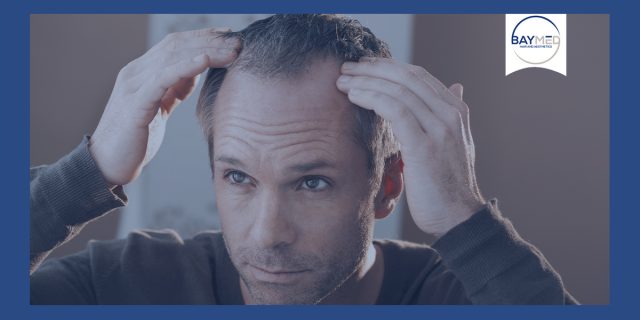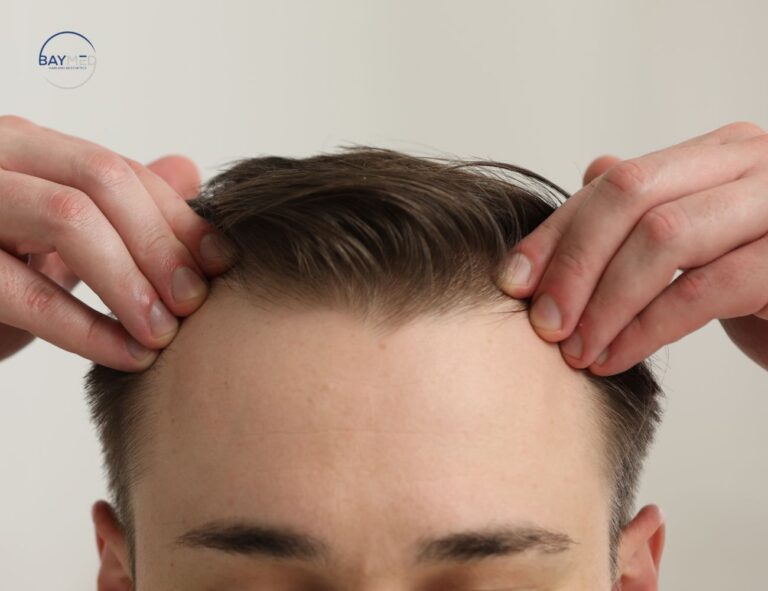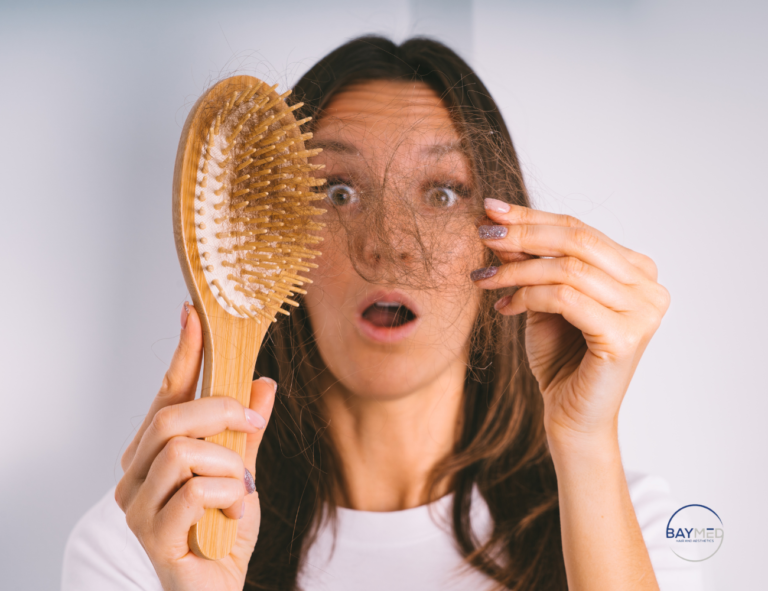We all lose hair. Like our furry companions, shedding is a natural part of the hair-growing process. But for some of us, that natural shedding goes into overdrive, and we start losing a lot of hair.
How Do I Know If My Hair Loss Is Normal?
According to the American Academy of Dermatology Association, most people lose between 50 and 100 individual hairs a day with spikes in hair loss after specific health issues, including weight loss, illness with a fever, or COVID-19. This is called telogen effluvium and usually subsides naturally, but some forms of hair shedding are not typical.
When hair loss becomes hair shedding, it is called anagen effluvium and can be caused by hereditary issues to poor choices in hairstyle. The most significant difference between shedding and hair loss is whether the hair has stopped growing. If your hair has stopped growing and you are losing more than 100 strands of hair a day, it’s time to consult with a hair restoration specialist.
Is Hair Loss a Side Effect of COVID?
One of the most common causes of temporary hair loss right now is the effect of COVID-19. Dermatologists believe this side effect is because of the high fevers common when people have COVID or because of the stress of the illness. In most cases, hair loss due to COVID will stop after a few months, and hair will regrow.
What Are the Most Common Types of Hair Loss?
In high school, most of us learned about hereditary hair loss, sometimes called male pattern balding, but it turns out those high school introductory lessons to genetics didn’t cover everything. And male pattern baldness isn’t exclusive to men.
One of the most common forms of hair loss is genetic, and as hair loss is often called alopecia, hereditary hair loss is known as androgenic alopecia. Sometimes alopecia comes with accompanying descriptors to identify where the hair loss occurs. For example, a receding hairline can be called frontal fibrosing alopecia .
Hereditary hair loss accounts for as much as 99 percent of hair loss in men and usually begins around age 50 but can start much earlier. Other hair loss may be caused by medication, including chemotherapy or some hormones, poor diet, or even chemicals in the world around us. Sudden or extreme shock to the body, either emotional or physical, can also lead to hair loss.
In addition, some skin conditions, including eczema, can cause itchy, inflamed skin spots and patchy hair loss. Parasitic infections like ringworm can also can hair loss.
Experiencing Hair Loss? Contact BayMed Hair & Aesthetics
If you are experiencing hair loss that is more than shedding, it’s essential to consult a doctor to determine the cause of the hair loss and what can be done to stop or slow the process. Contact us at BayMed Hair and Aesthetics today to help figure out what to do about your hair loss.





